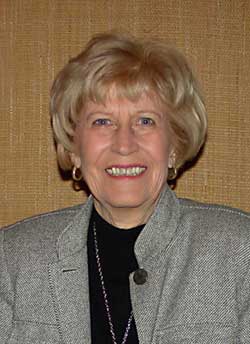A few years ago when gasoline prices began to rise, hitting an "unbelievable" $2 per gallon, consumers all cursed at the oil gods whoever, or wherever they were, and then paid the price and went about their business. At this writing, motorists in Nevada are paying higher than the national average for gasoline. Consumers are shrugging, uttering a few curses, filling their tanks and going on their way.
A specialist in consumer behavior, Daniel Howard of Southern Methodist University in Dallas, Texas is also shrugging his shoulders. According to his consumer behavior research, he says he's not surprised by the reaction. He says this reaction will continue until prices get so high consumers have to cut back on luxury items and food and shelter.

Once known as The Green Felt Jungle, Las Vegas, according to a recent survey, has the highest percentage of its municipal vehicles running on alternative fuels. Thus, we are still in the "green" category because we are taking care of our environment.
There are 1,500 vehicles in the city's fleet. Of those, 450 operate on a mix of diesel and soybean oil. Compressed natural gas runs 185 city vehicles; 10 use a combinations of hydrogen and compressed natural gas. The city also leases one Honda that runs solely on hydrogen, which has zero emissions. The idea of having a diversified number of vehicles running on alternative fuels is so that the advantages can be replicated for use in the general public.
The Springs Preserve project opened in May. One of the prime features on display in the Springs Reserve is the use of solar energy. Architects can study the fabulous "Green House" which employs the use of solar energy and can determine how to build an individual client's home by studying the solar energy collected in panels.
The Las Vegas Water Valley District fleet drivers can refuel their utility vehicles with hydrogen from the new solar-powered hydrogen fueling station on the grounds of the Springs Preserve. Using power collected by the solar panels that follow the sun's path across the sky, the fueling station generators use electrolysis to separate oxygen from water to extract hydrogen, which is then stored and used as fuel.
The Herbst family is at it again. The family has been busily running a string of gasoline stations in Las Vegas for 50 years. Next, they introduced slot machines to their stations which already offered food, lube jobs and car washes. But their biggest enterprise was in 1999 when they opened a casino near McCarran Airport. Their latest endeavor is the purchase of three Casinos in Primm, the first stop for Los Angeles drivers before they hit the Las Vegas Strip. The Primm Casinos will be promoted at the 100 or more Herbst Service stations across the Las Vegas Valley.
The Las Vegas Review Journal recently conducted a telephone poll and discovered that the majority of Nevada voters want "anybody but themselves to pay new taxes for improving Nevada's highways and streets."
While voters firmly rejected any more raids on their own pocketbooks, they suggest that tourists, truckers and casinos should foot the bill. Govenor Gibbons has long insisted he would not support any new taxes in order to pay for road work and other state needs. Clearly what those polled are saying is that considering the very real threat of gasoline prices hitting the $4 mark, this is not the right time to consider a proposed fuel tax increase.
Also, the majority of voters made it clear they would also reject raising driver's license fees and vehicle registration fees.
Originally published in the June 2007 issue of the O&A Marketing News.
Copyright 2007 by KAL Publications Inc.
Serving the 13 Western States, the World's Largest Gasoline, Oil, Fuel, TBA and Automotive Service Market